Have you ever considered to go on a safari? With these hints, maybe you will ...
- 7 minutes to read
- 06 April 2022
- shannonvlahakis
Have you ever considered to go on a safari? With these hints, maybe you will ...
Going on an African safari is a high priority on many avid travellers’ wish lists. The continent is home to incredible wildlife, stunning panoramas and 54 countries, rich in culture and tradition.
A 2018 CNN travel article listed the eight best safari destinations in Africa. They ranged from exploring the vast reigns of the Serengeti in Tanzania, to spotting the “Big Five” – lion, leopard, rhinoceros, elephant, and buffalo – at Hwange National park in Zimbabwe, to escaping into the untouched wilderness of Mathew’s Range in Kenya. The diversity of experiences in the continent is unmatched.
Unfortunately, the decision to go on a safari is significantly easier than planning the journey. Joining a safari can be logistically complicated considering the type of transport that is used to go on excursions and the accommodation that people usually stay in. However, all hope is not lost. An increasing number of accessible safari tours and accommodations are offered for travellers with limited mobility.

A safari can be a great experience as a couple as well as in a group. (Source: https://www.lptour.it)
Choosing a travel company for planning your safari
A number of companies across Africa are making such unforgettable experiences accessible to people with disabilities. Here are four safari operators in different parts of the continent:
- Go Africa Safaris & Travel: This company is considered the leader in wheelchair accessible African safaris. It offers tours in Kenya, Tanzania and Uganda.
- Endeavour Safaris: This company offers accessible tours and safaris in Botswana, Namibia and South Africa. It is largely focused on tailoring trips to individual needs—just talk to their consultants.
- Epic Enabled: Based in Cape Town, South Africa, the company is dedicated to providing its guests with an authentic experience in Kruger National Park.
- Access 2 Africa Safaris: They offer safari tours in both South Africa and the tiny landlocked country of Eswatini. Dr Scott Rains, renowned advocate for accessible travel, shared in his testimonial for the company:
“Jennae Bezuidenhout of Access 2 Africa Safaris is an enterprising woman. She is the reason I was able to make this trip. (...) Since her husband’s paralysis she has taken what she has learned from her personal and business environments and woven them into something unique. She has become a provider of – and an evangelist for – safaris that include travellers with mobility impairments and other disabilities.”
Scott Rains, American travel writer and advocate for disabled people
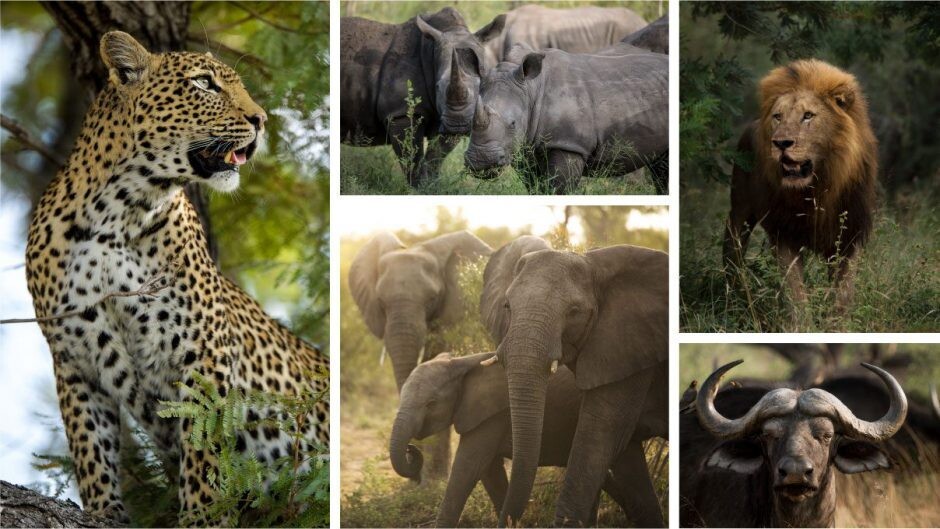
The Big Five – leopard, rhino, elephant, lion, and buffalo – are considered the most important animals that you “must” have seen on a safari ... (Source: https://blog.rhinoafrica.com)

… however, there are so many more fascinating wild animals to discover. (Source: https://discoverdiscomfort.com)
Tips and considerations when planning your safari trip
- Consider which time of year is best for your visit. Wild animals move according to the seasons and you surely do not want to miss Africa’s renowned wildlife migrations. To watch it, the dry season between May and September is usually the best time. On this website you get an overview in which months you need to be where in East Africa to see the great wildebeest migration.
- Decide how you want to travel. An important decision is whether you want to travel with a guided tour or on your own. Both have their advantages and disadvantages, and you should be clear about which you prefer.
- Book early. Wheelchair-accessible, inter-connecting and family suites are limited, especially during peak season, which is around July to October. In order to get the desired accommodation, it is recommended to book six to nine months in advance.
- Consider a road-based itinerary. If you’re thinking of exploring more than one destination, keep in mind that distances between different locations are huge and flying might be the only option. This usually involves the use of light aircraft that might not be capable of transporting people in a wheelchair, or even just the wheelchair as luggage. Opting for road travel in four-wheel drive where possible may be the best. Good road-based itineraries can be found, for example, in Namibia, in Tanzania’s Northern Circuit area, in the Kruger National Park and on the Garden Route in South Africa.
- Be clear about your needs. Speaking as a Zimbabwean, I can promise you: Africans know how to make a plan. They will find a way to accommodate you and your needs in the best way possible. Make sure that there is clear communication about all your specific needs, whether it is a roll-in shower or extra assistive devices on site – so be sure to ask before and during your trip.
Here are some more hints that are important for traveling in general, and even more for safaris:
- a full medical check-up including vaccinations, prescriptions etc.
- a comprehensive travel insurance
- spares and items like a puncture-repair kit for your tires
- lots of sunscreen and a wide-brim hat.
Accessible accommodation for the safari
Not all safaris are equal. There are classic safaris, offering a more authentic, all-nature-embracing experience. Then there are luxury safaris, which have a more comfortable, home-away-from-home, five-star experience. Discuss with your travel consultant to find out which option is best for your needs. Here are some images to show you how the accommodation for your safari trip could look like.
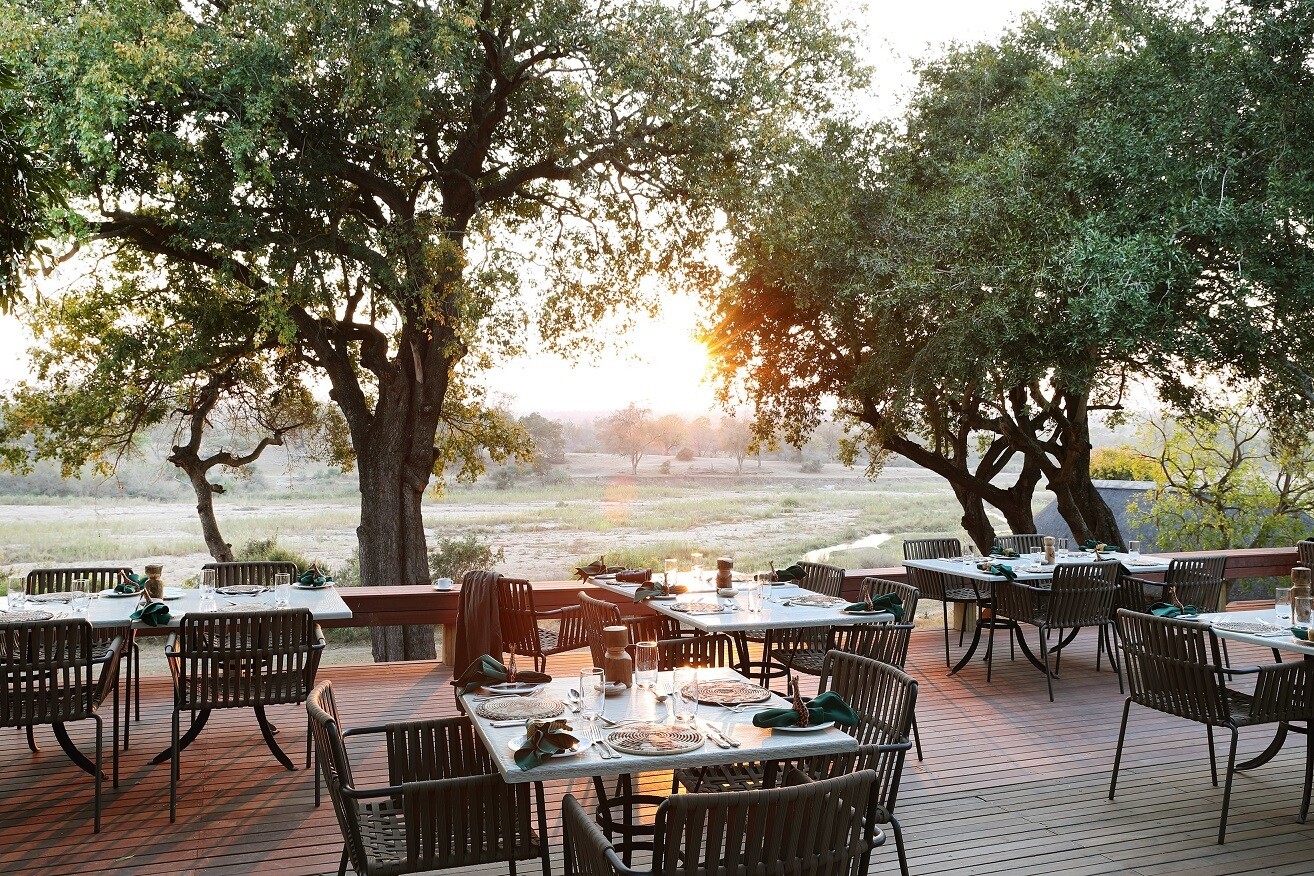
The luxurious MalaMala Camp in South Africa's Kruger National Park “prides itself on being one of the few safari destinations able to offer a universally accessible suite”. This includes an accessible bathroom with wheel-in shower as well as ramps into the rooms and the vehicle housing. (Source: https://www.malamala.com)

The also luxurious Angama Mara in Kenya offers a stunning view on the Masai Mara’s plains. The lodge describes itself as “wheelchair friendly”, with all levels fitted with ramps, grab rails in the shower and toilet, and one tented suite specially equipped for travellers with disabilities. (Source: https://angama.com)
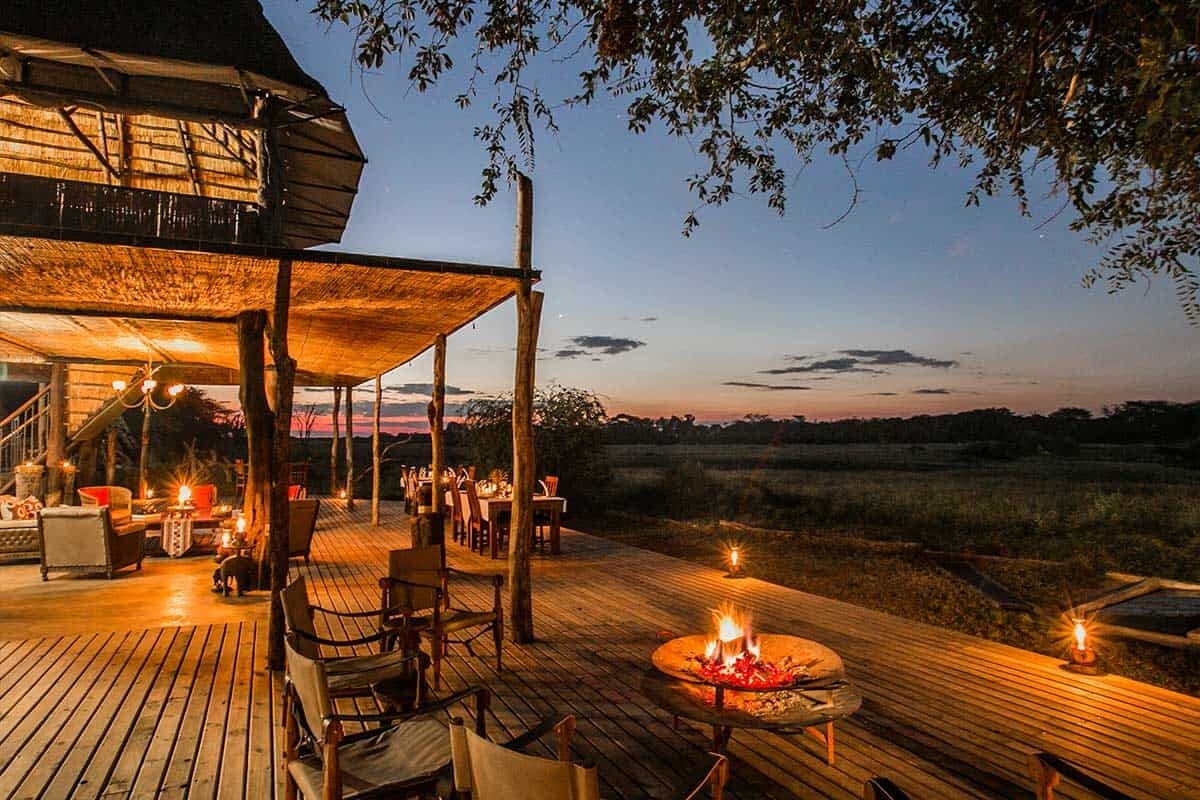
The Hide Safari Camp in the Hwange National Park in Zimbabwe is considered a rather down-to-earth lodge. It has wide doorways, solid, compacted pathways, and accessible outdoor showers. (Source: https://www.thehide.com)

The Palace of the Lost City is a five-star hotel in the Sun City luxury resort, bordering the Pilanesberg National Park. It offers a wheelchair-accessible room on the ground floor, a roll-in shower and hand rails in the bathroom. (Source: https://www.go2africa.com)
Of course, on an African safari you cannot expect the accommodation and accessibility standards that you are used to. Consider that most lodges or camps are not really equipped for wheelchair users. Therefore, flexibility during your trip and some considerations in advance are essential. Here are some points to consider when choosing your accommodation:
- Better stick to accommodation based on flat terrains rather than in the hills or mountains. They may still have a few stairs, but these should be possible to navigate with a ramp or support from the staff.
- Make sure that there are accessible showers. Lodges with outdoor showers are the most convenient as they tend to be more spacious and not to have doors or ledges.
- Make sure they have 24/7 electricity at the site particularly for users with a motorized wheelchair that requires charging.
You find a selection of wheelchair-friendly accommodation on this website.
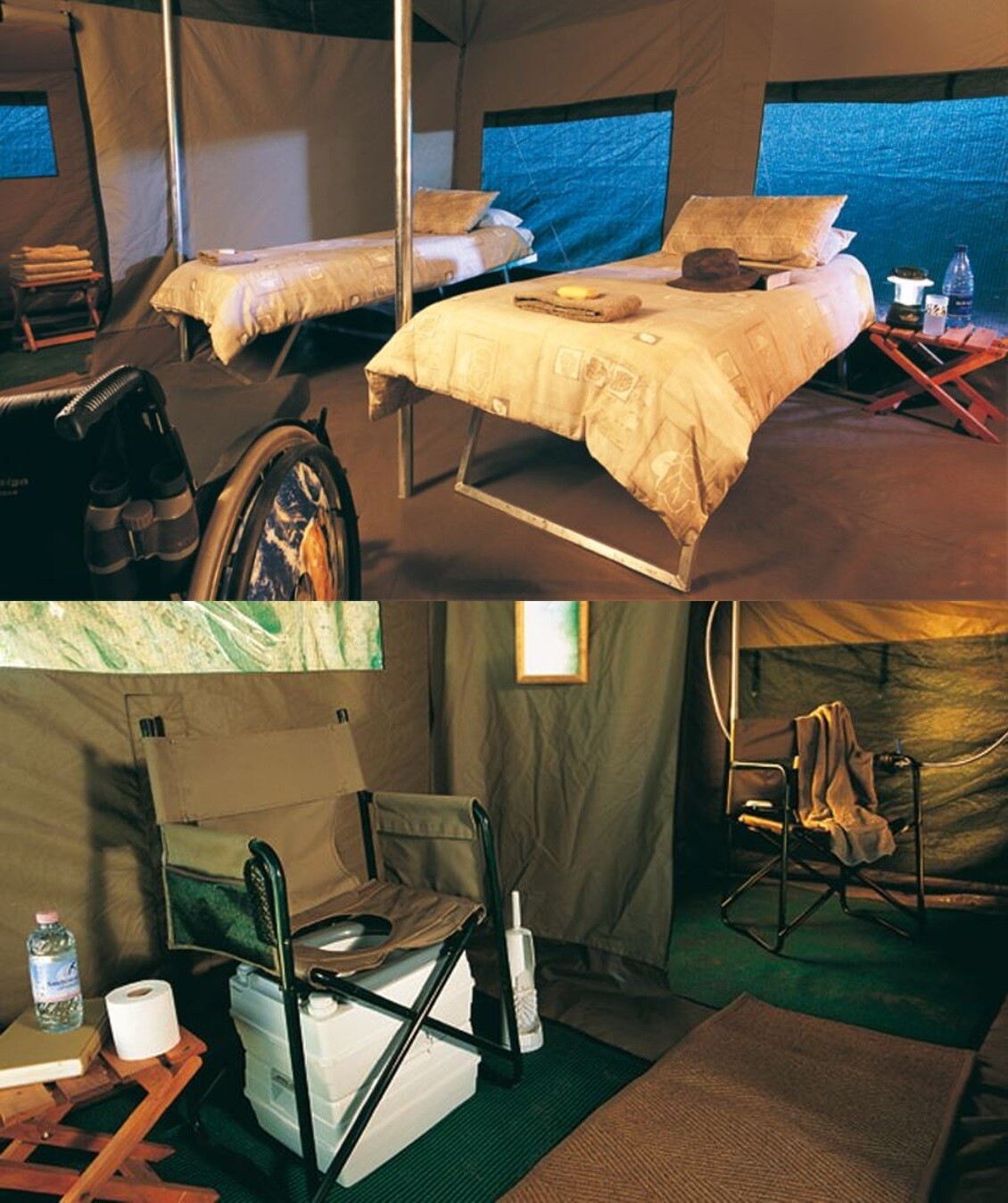
Do not expect too much comfort and accessibility on your safari trip, especially if you are not in a luxury hotel. (Source: https://www.lptour.it)
First-hand experiences and travel blogs on safaris in wheelchair
There are many travel blogs and experience reports on the Internet. To name a few:
- You can find two “Swiss“ safari travel reports about South Africa and Botswana in the “Paracontact” magazine of the Swiss Paraplegics Association (both on page 31, in German).
- For a more comprehensive experience report check out the blog WheelchairTravel.org by John Morris, who has travelled the world in wheelchair with three amputated limbs due to a car accident. He has divided his experiences from a safari to Kenya from 2019 in six comprehensive blog posts, which you can access via the content table.
- Another great source is the blog Curb Free with Cory Lee. Living with spinal muscular atrophy, Cory Lee has rolled around the world and inspired others to follow through his timeless blogs and travel tips. In one of his blogs he recalls his experience travelling with Epic Enabled to Kruger National Park and provides some tips for travel essentials.
There have been significant advances in wheelchair accessible accommodation, transport and inclusive tourism in general. That makes going on an unforgettable African safari an achievable dream also for people in a wheelchair.
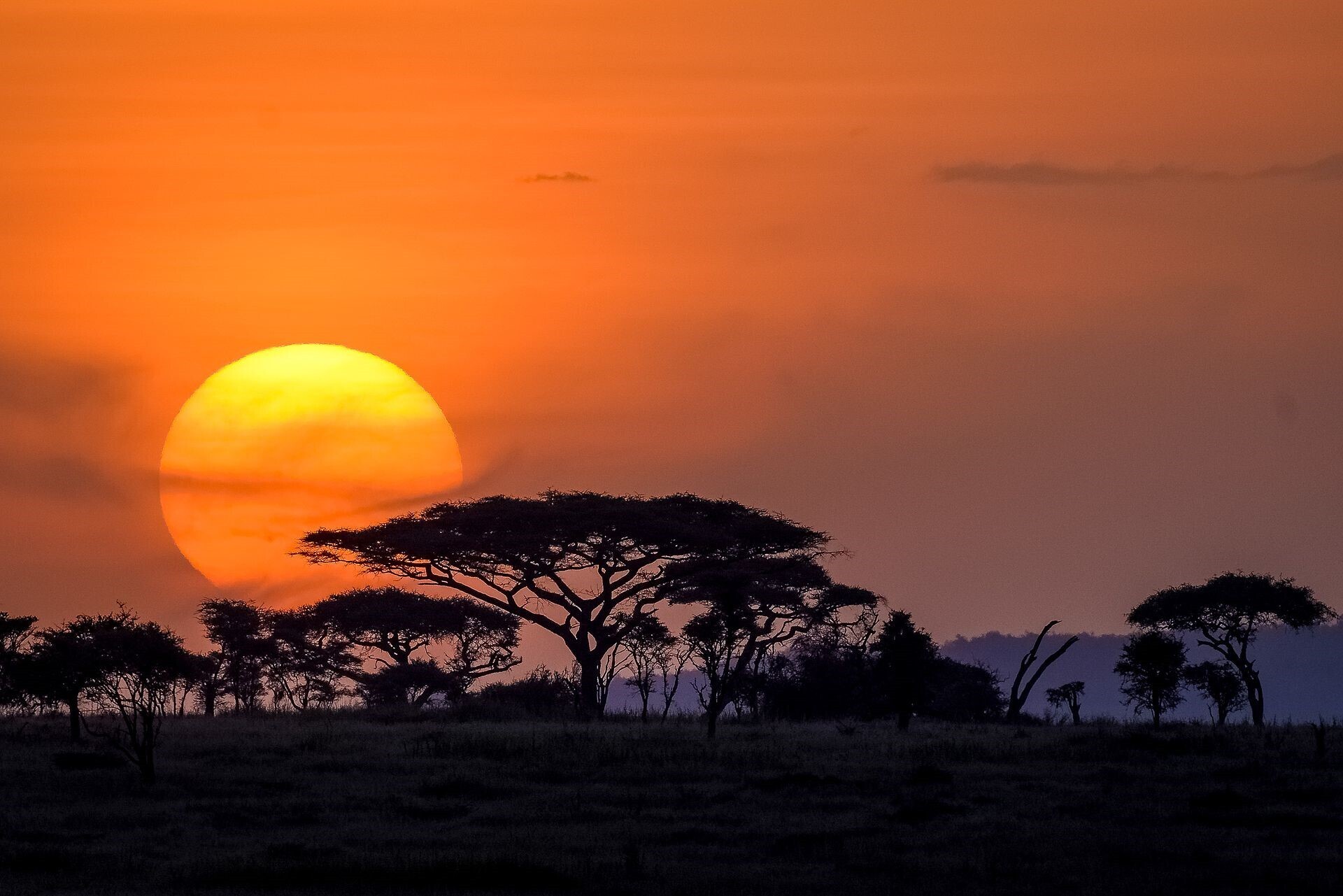
The Serengeti at Sunset. (Source: Grahampurse, Wikimedia Commons, CC BY-SA 4.0)
Would you love to go on a safari trip? What are you most interested to see?

